Over the weekend Geopoet, Davide Sapienza, and geologist, Robert Weis hosted a Geopoetic Camp in the quiet and secluded town of Lasauvage. Nestled in the valleys of the southern Minett region of Luxembourg, this place offered a perfect poetic outlet for the two specialists as they introduced their quests to Luxembourg’s industrial mining past and to challenge the young participants to open themselves to experience this unique environment in a more personal and emotional manner.
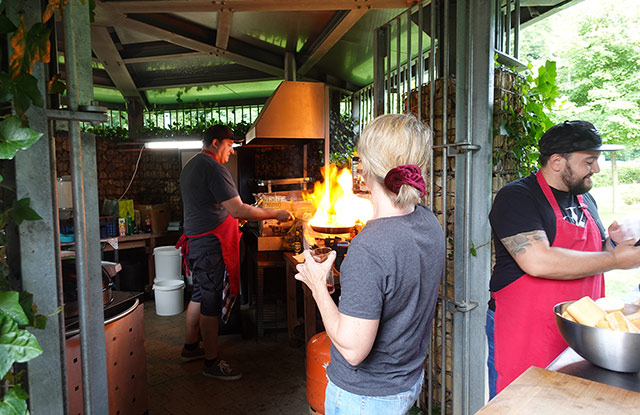
On Friday, the guests were greeted to the camp with a sunny welcome BBQ. This sunshine quickly turned to rain on the next day. Yet the group were not deterred. And instead, the trails and natural landscapes seemed to come to life and the ominous presence of the clouds added to the mysterious setting of the region, named after the crazy free spirited ‘witch’, who had solitarily inhabited the forest years before. In inspiration of this legendary wild lady, the group thus let loose of their inhibitions and let themselves free to be guided on wild and wonderous hikes through the Fonds-de-Gras mining basin. The tour, not your typical guided nature tour, but rather was a journey punctuated by 10-minute silent walking stretches as well as several pauses for geopoetic texts to be read by Davide.
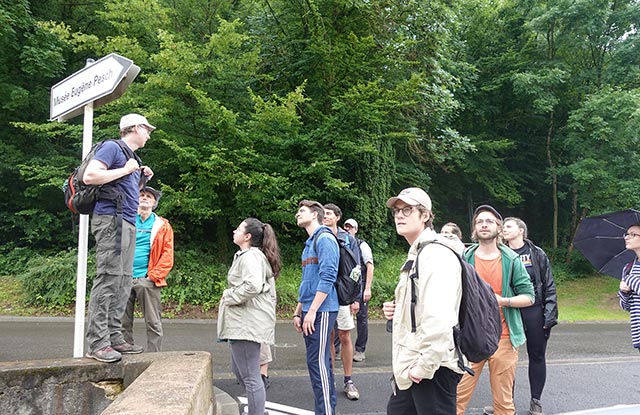
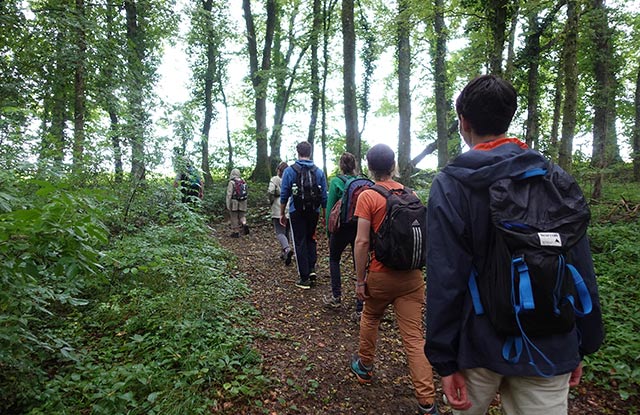
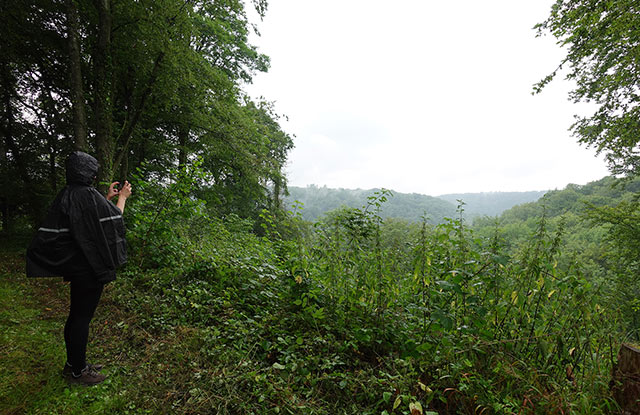

These moments within the journey came with the purpose of encouraging the participants to take in their immediate surroundings and to create an emotional story connected to this space and moment for themselves. Whether these moments included a mining tunnel entrance, breathing cool air over their bodies or a glistening wee pond darting with lively insects, they were powerful reflective moments which the partakers cherished and were brilliantly complimented by Robert’s scientific notes on the site. These notes on the geological and industrial history of region seamlessly fullended the emotional story the participants were creating in their minds.

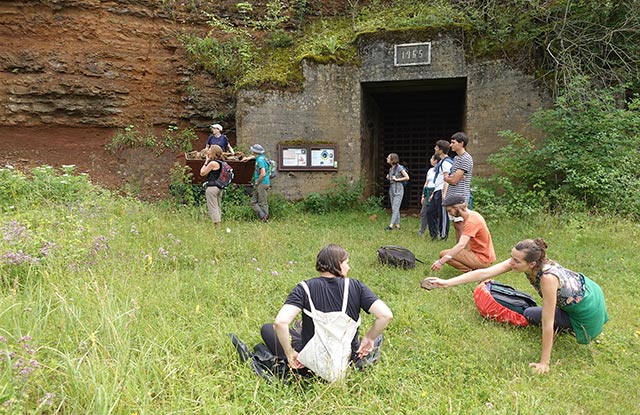
In the evening, the group sought refuge from the stormy weather in a local pub whilst waiting for the bus home to the Auberge in Lasauvage. Once back at the school turned hostel, the group served up a warming plate of spaghetti, before continuing the night at a sleepy old pub near by and then ending the night at the local sports field where the group sung and danced just beyond the midnight hours.
The morning of the last day continued as the previous, whilst in the afternoon the reigns were taken over by Lise Landrin, a geographer of the University of Luxembourg working in the field of the ‘Geography of Emotions’. In the community gardens of Lasauvage, Lise lead the group through a couple of engaging reflective and sensory exercises. In the first, members were asked to pair up, one person being challenged to guide the other on a sensory experience through the garden whilst their partner was blinded by closing their eyes. Partners swapped roles and then finally discussed their respective journeys by each drawing a map of their experiences.
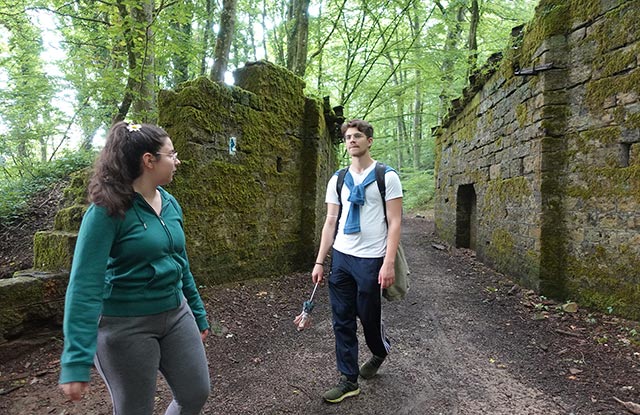

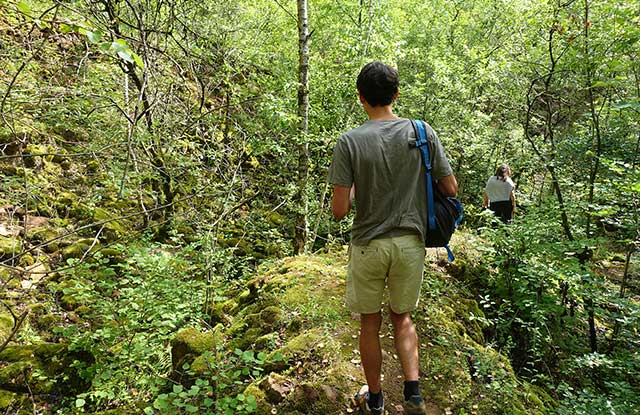
As a final exercise of the camp everyone was asked to choose a site within the garden that remined them of a specific memory of their past and were encouraged to write a short text about this memory, starting with the words: ‘I remember when…’. This thus put a wholesome end to the adventure that was the geopoetic camp. The group was left with a true essence of what geopoetics aims to be: a story through lives and emotions, through time and through space and into the beyond. Into the ibis of feelings and experiences of nature and of one’s person still to come in the future.



